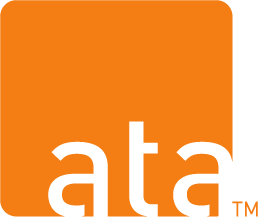WIC State Agencies should consider sustainability throughout the development and integration of telehealth solutions. In this blog post, we’ll explore key themes from recent interviews with THIS-WIC telehealth vendors regarding sustainability considerations. Design a telehealth solution so content can be easily updated When considering sustainability of telehealth solutions, WIC State Agencies should design content in
Category: Uncategorized
Setting the Stage for Success
Setting the Stage for Success: Five Training Best Practices for WIC Telehealth Programs Effective training for WIC State Agency and local agency staff is essential for project success. This is especially true when implementing a new solution. THIS-WIC interviewed telehealth vendors to understand their perspective on effective elements of trainings for WIC State Agency and
Advancing Health Equity: Considerations for WIC Telehealth Integration
As WIC State Agencies adopt and implement new telehealth solutions to support WIC services, it’s important to consider health equity in the development and implementation of these solutions. Vendors need to take into account the varying needs of their users and consider ways to make the technology accessible to all. THIS-WIC interviewed telehealth vendors to
Building Strong Partnerships: Best Practices for WIC State Agency Vendors
Strong partnerships can make or break a project’s success. To understand what factors are critical to successful vendor-client partnerships when developing technology solutions for the WIC context, THIS-WIC interviewed participating telehealth vendors to understand their perspective on establishing partnerships with WIC State Agencies. Below are six key takeaways on forging a new telehealth vendor partnership.
Overcoming Barriers: Expanding the Reach of Telehealth Solutions in WIC Programs
Telehealth has become increasingly important for WIC State Agencies to modernize the way they provide services to WIC participants. However, telehealth vendors face obstacles with expanding services across WIC State Agencies. Here, we present some of the obstacles discussed in recent interviews with THIS-WIC telehealth vendors and highlight some of their suggested solutions. Planning for
Collaboration Drives Success: Building Strong WIC State Agency and Telehealth Vendor Partnerships
The COVID-19 pandemic has accelerated the adoption of telehealth technologies in healthcare, including in the Special Supplemental Nutrition Program for Women, Infants, and Children (WIC). As WIC programs continue to offer telehealth services, telehealth vendors need the support of WIC State Agencies to ensure the success of new solutions. While the implementation of telehealth solutions
North Carolina WIC: Addressing Barriers to Access with Telehealth
Before finding the RFP for the grant, North Carolina WIC saw the need to upgrade their services to better meet the needs of the target population. The North Carolina team saw the opportunity to reach their target population where they are and decrease barriers to accessing services. Prior to the start of the grant, North
District of Columbia: Breaking Down Barriers with Technology
Nationwide, families experience a range of barriers when trying to enroll in WIC. DC WIC is actively working to reduce access barriers including transportation, misconceptions about eligibility, and stigma. DC WIC local agencies are strategically co-located in federally qualified health centers and hospital systems and focused on strengthening partnerships and referral networks with healthcare providers.
South Carolina WIC: Streamlining Services through Telehealth
When South Carolina was approached by their Management Information System (MIS) vendor to develop an online platform for nutrition and breastfeeding services, they saw it as an opportunity to expand upon their existing WIC services. South Carolina WIC recognized the need to reach clients, particularly in rural communities, and decided that telehealth was the solution
Michigan WIC: Increasing Access to Vulnerable Clients through Telehealth
Michigan WIC serves lots of clients with various health backgrounds. When thinking about implementing telehealth into their local agencies, they realized the importance of targeting a subset of their client population. Michigan decided to target high risk clients to provide additional services via telehealth. Project Overview Michigan WIC’s project aims to virtually provide nutrition education





